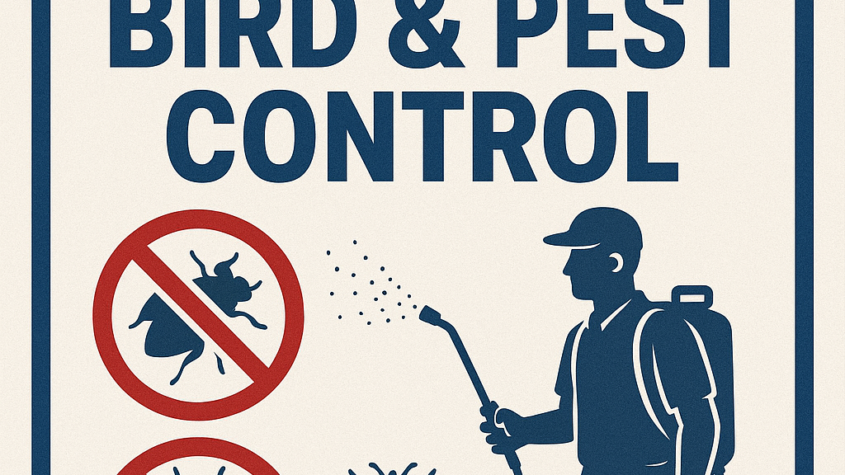
Rodent infestations can become a significant issue for homeowners in West Vancouver, posing health risks and causing property damage. Effective rodent control West Vancouver measures are essential for maintaining a safe and comfortable living environment. Understanding the common types of rodents in the area and their behaviors is the first step in addressing this problem.
Choosing the right control methods is crucial for effective results. From preventative measures to professional extermination, addressing rodent issues promptly can save time and money in the long run. Knowledge of local regulations and eco-friendly practices also plays a vital role in sustainable rodent management.
This blog post will explore various strategies for rodent control, offering insights that will help residents safeguard their homes and health. By being proactive and informed, they can take the necessary steps to ensure a rodent-free environment.
Understanding Rodent Behavior and Infestation Risks
Rodents exhibit specific behaviors that influence their habitats and potential entry points into buildings. Recognizing these patterns can help in effective control measures. Additionally, understanding the health hazards associated with rodents, along with identifying signs of their presence, is crucial for preventing infestations.
Habitats and Common Entry Points
Rodents thrive in environments that provide shelter and access to food. Common habitats include:
- Residential Areas: Garages, attics, and basements.
- Commercial Properties: Warehouses and restaurants.
These pests often enter buildings through small openings. Typical entry points include:
- Gaps in walls or foundations
- Areas around utility lines
- Vents and chimneys
Keeping these areas sealed can minimize risks. Regular inspections are essential for identifying potential entry points before infestations occur.
Health Hazards Associated with Rodents
Rodents pose various health risks to humans. They are known carriers of several diseases that can be transmitted to people. Key diseases include:
- Hantavirus
- Leptospirosis
- Salmonella
Additionally, rodent droppings and urine can trigger allergies and asthma attacks. Contamination can occur through food or surfaces that come into contact with rodent waste. Maintaining cleanliness and addressing infestations quickly is vital for health safety.
Signs of a Rodent Infestation
Identifying a rodent infestation early can prevent extensive damage. Common signs to look for include:
- Droppings: Small, dark pellets found near food sources or nesting areas.
- Gnaw Marks: Damaged wood, wires, or food packaging can indicate rodent activity.
- Noises: Scratching sounds in walls or ceilings, particularly at night.
Visual sightings of rodents, particularly during the day, signal a significant problem. Monitoring and promptly addressing these signs can help mitigate further issues and maintain a rodent-free environment.
Effective Rodent Control Strategies
A combination of preventive measures, baiting, trapping methods, and professional services can effectively manage rodent populations in West Vancouver. Each strategy plays a vital role in ensuring a long-term solution to rodent issues.
Preventive Measures and Exclusion Techniques
Preventive measures focus on making environments less attractive to rodents. Sealing entry points is crucial. This includes:
- Closing gaps: Use caulk to seal cracks, especially around windows and doors.
- Screening vents: Install mesh screens on vents and chimneys.
- Proper storage: Store food in airtight containers to limit access.
Maintaining cleanliness in the home is essential. Regularly disposing of garbage and cleaning up food spills deters rodents from nesting. Furthermore, reducing clutter in basements and attics minimizes hiding spots, making these areas less appealing to rodents.
Baiting and Trapping Methods
Baiting and trapping are direct methods for controlling rodent populations. Effective strategies include:
- Snap traps: A quick, humane way to capture rodents.
- Live traps: For those who prefer to release captured rodents away from their property.
- Bait stations: Secure bait stations can be effective in areas with high rodent activity.
When using bait, it is important to select the right type. Rodenticides can be effective, but they must be used cautiously to avoid accidental poisoning of non-target animals. Placing bait strategically in areas with signs of rodent activity increases the likelihood of success.
Professional Pest Management Services
Professional pest management services offer expertise in handling rodent issues. They typically provide a comprehensive approach that includes:
- Inspection: Assessing the property to identify rodent entry points and nesting areas.
- Custom treatment plans: Creating tailored solutions based on the level of infestation.
- Ongoing monitoring: Ensuring that populations do not return after treatment.
By relying on trained professionals, property owners can benefit from advanced tools and techniques. This can include technology like thermal imaging to detect rodent nests and strategic bait placement to maximize efficiency and safety.
Sympathy Flowers: A Thoughtful Gesture for Consoling Loved Ones
Sympathy flowers serve as a heartfelt gesture during times of loss or grief. They express …




